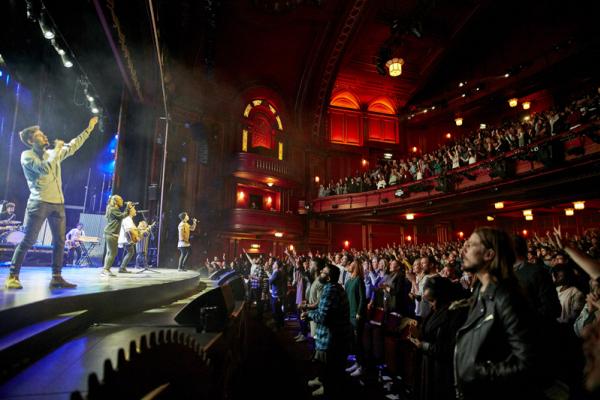This month, French authorities have been demolishing the 'Jungle,' a toxic wasteland on the edge of Calais. Formerly a landfill site four kilometers square, it is now populated by approximately 5,000 refugees pushed there over the last year. A remarkable community of 15 nationalities adhering to various faiths comprises the Jungle. Residents have formed a network of shops and restaurants which, along with hamams and barber shops, contribute to a micro-economy within the encampment. Community infrastructure now includes schools, mosques, churches, and clinics.
Church closings are nothing new in the United Kingdom.
In the past six years, 168 Church of England churches have closed, along with 500 Methodist and 100 Roman Catholic churches.
“Christianity in Britain has seen a relentless decline for over 100 years,” says Linda Woodhead, a sociologist at Lancaster University.
As a social concept, humanism isn’t a threat to religion, nor actively working against it — humanism is simply a growing alternative in terms of spiritualism and rationalism. These six burial practices of humanist funerals can help us understand why.
The leader of the “Moral Mondays” movement and a prominent New York minister are joining forces for a 15-state “moral revolution” tour to counter the nation’s conservative voices.
“Way too much of our national discourse has been poisoned by hateful language and policies,” said the Rev. William J. Barber II, who brought thousands to weekly protests at the North Carolina General Assembly, in an announcement.
An annual “snow bird” sojourn to South Africa was convicting. The constant news highlighted the American political “silly season” along with the drumbeat reports of President Jacob Zuma’s illegal brutish behavior. An African storekeeper exclaimed, “Do Republicans not see the Trump antics are undermining the good feelings we have because of President Obama’s accomplishments? We are afraid for all of us.”
Attorney General Roy Cooper said March 29 that he will not defend the new state law that prohibits local governments from approving LGBT protections, reports The New York Times. Lambda Legal and the North Carolina ACLU have filed suit against the state.
On March 29, public sector unions narrowly avoided a severe blow as the Supreme Court handed down a 4-4 ruling in the case of Friedrichs v. California Teachers’ Association. The split ruling in the case, which dealt with the use of “fair-share” fees by public unions to fund their collective bargaining on behalf of all employees (including non-union employees).
The split ruling means that the Ninth Circuit’s ruling in favor of the teachers’ union and their use of such fees will stand, though no new precedent will be set.
Meeting for a one-day emergency session last week, North Carolina’s General Assembly passed HB2, which has been widely criticized as the nation’s worst anti-LGBT bill. In supposed defense of the general welfare, conservative lawmakers moved to stop a Charlotte ordinance that would have allowed transgender citizens to use public restrooms of the gender with which they identify. But their call to “protect our women and children” echoes language of the white supremacy campaign that overthrew local governments in this state 120 years ago. Both then and now, the call to defend families against imagined predators is a crude power grab.
Canadian police are investigating Chaldean Catholic priest from London, Ont., after church officials reported more than $500,000 Canadian dollars ($380,000 U.S.) slated for refugee sponsorship was lost to gambling, according to The Toronto Star.
Father Amer Saka, a priest working at the St. Joseph Chaldean Catholic Church in London, allegedly told his bishop, Emanuel Shaleta, that funds intended to help new Canadians had instead vanished in vice, Shaleta told the Star.
On screen and on the page, superheroes have long offered insight into clashing ideas about justice and freedom. Should we work within the law to obtain justice, or go outside of it when conventional methods aren’t enough? Are courts and law enforcement the best judge of punishment? And what is the proper reaction when we’re faced with new, uncertain changes in our reality?
These are complex, important questions that, given the heightened political atmosphere these days, couldn’t be more timely. While Batman v. Superman: Dawn of Justice ought to be just the place to discuss them, in the hands of director Zack Snyder and writers David S. Goyer and Chris Terrio, that opportunity is wasted.









